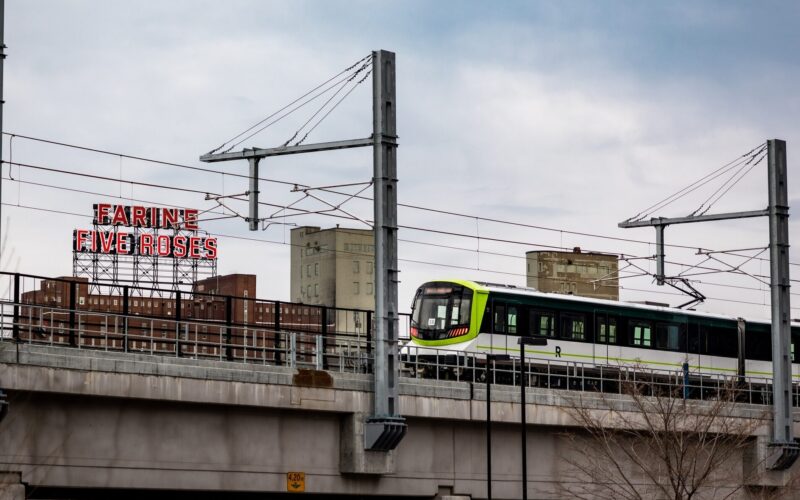
SF Mayor London Breed promised to win back the public’s trust in Muni. To do so, she'll need to empower the next SFMTA chief to put transit riders first.
The last two years have been rough for Muni riders. With a shortage of bus operators, it’s all too common for scheduled buses to never show up. New light rail vehicles have been plagued by malfunctions, including train doors clamping down on unsuspecting riders and in at least one case dragging a woman onto the tracks. The 2019 biennial “City Survey” revealed a huge loss in public confidence in the SFMTA, the city agency that houses Muni, since 2017.
Shortly after a damaged wire wholly disabled all light rail service to downtown during the morning rush on April 26, SFMTA Director Ed Reiskin announced his resignation. Mayor London Breed promised to win back the public’s trust in the system and bring in a “real transportation expert.”
Looked at as a whole, Reiskin’s eight years as SFMTA chief are more accomplished than recent events suggest. During his tenure, San Francisco became the first American city to launch all-door bus boarding systemwide, and the agency rolled out street improvements to prioritize transit, bicycling, and walking (often at a glacial pace, however). Compared to other large American cities, transit ridership has held up well in San Francisco.
But Muni service remains too sluggish and unreliable. Reiskin’s departure could lead to a reset at the SFMTA, and a faster flow for the type of transit improvements that trickled out under his leadership — if Breed empowers his successor to do so.
Rachel Hyden, executive director of the grassroots organization San Francisco Transit Riders, says that delivering the basics of reliable service and good communication will be essential to winning back riders’ trust.
Riders have lost faith in Muni because it has failed to deliver scheduled service. “As much as people love to hate Muni or hate to love Muni, it’s their only way to get around, and time and time again they’re being let down,” said Hyden. Breed and the next SFMTA chief have to attract new bus operators to work shifts that are currently going unfilled.
Riders also need more assurance from the SFMTA that the agency is on a path to more reliable service and fewer breakdowns. “There is certainly a lack of transparency on how they are going to fix things,” Hyden said. “How many times is a switch going to break at West Portal? What are you doing to fix that? That’s not being communicated at all to anybody.”
Hyden credits Reiskin for championing and rolling out transit-priority “red lanes.” Unique among American cities, the SFMTA both operates transit service and controls the streets. On Mission Street, the red carpet for buses has significantly improved speeds for some of the city’s busiest transit routes.
Citywide, however, bus lanes remain sparsely applied. Reiskin’s successor should be bolder in implementing bus prioritization projects, said Hyden.
SFTR plans to communicate the organization’s criteria for the new SFMTA chief to the agency’s board (which will lead the search for Reiskin’s replacement).
Whoever leads the SFMTA next, Mayor Breed will have to give the new director a strong mandate to make change. Hyden believes Breed has provided solid oversight of the SFMTA in the past year. Going forward, the mayor can help make good on the city’s longstanding “transit first” policy by publicly standing up for bus priority projects when the SFMTA faces opposition to measures that, say, repurpose on-street parking spots.
“Mayor Breed giving the SFMTA that cover and charge to build out the system would be ideal,” said Hyden.
 On the Brink: Will WMATA’s Progress Be Erased by 2024?
On the Brink: Will WMATA’s Progress Be Erased by 2024?
The experience of being a WMATA rider has substantially improved over the last 18 months, thanks to changes the agency has made like adding off-peak service and simplifying fares. Things are about to get even better with the launch of all-door boarding later this fall, overnight bus service on some lines starting in December, and an ambitious plan to redesign the Metrobus network. But all of this could go away by July 1, 2024.
Read More On Track for Success: Decoding Montreal’s REM Model for Efficient Transit Projects in the U.S
On Track for Success: Decoding Montreal’s REM Model for Efficient Transit Projects in the U.S
Why is it so difficult to build subway and light rail projects in America? Every week there’s a new story about an American transit project that is behind schedule, over budget, or “paused”. Montreal’s Réseau express métropolitain (REM) stands out as a recent North American project that has begun to address some of the challenges that have foiled so many others. What is REM getting right that other projects aren’t?
Read More